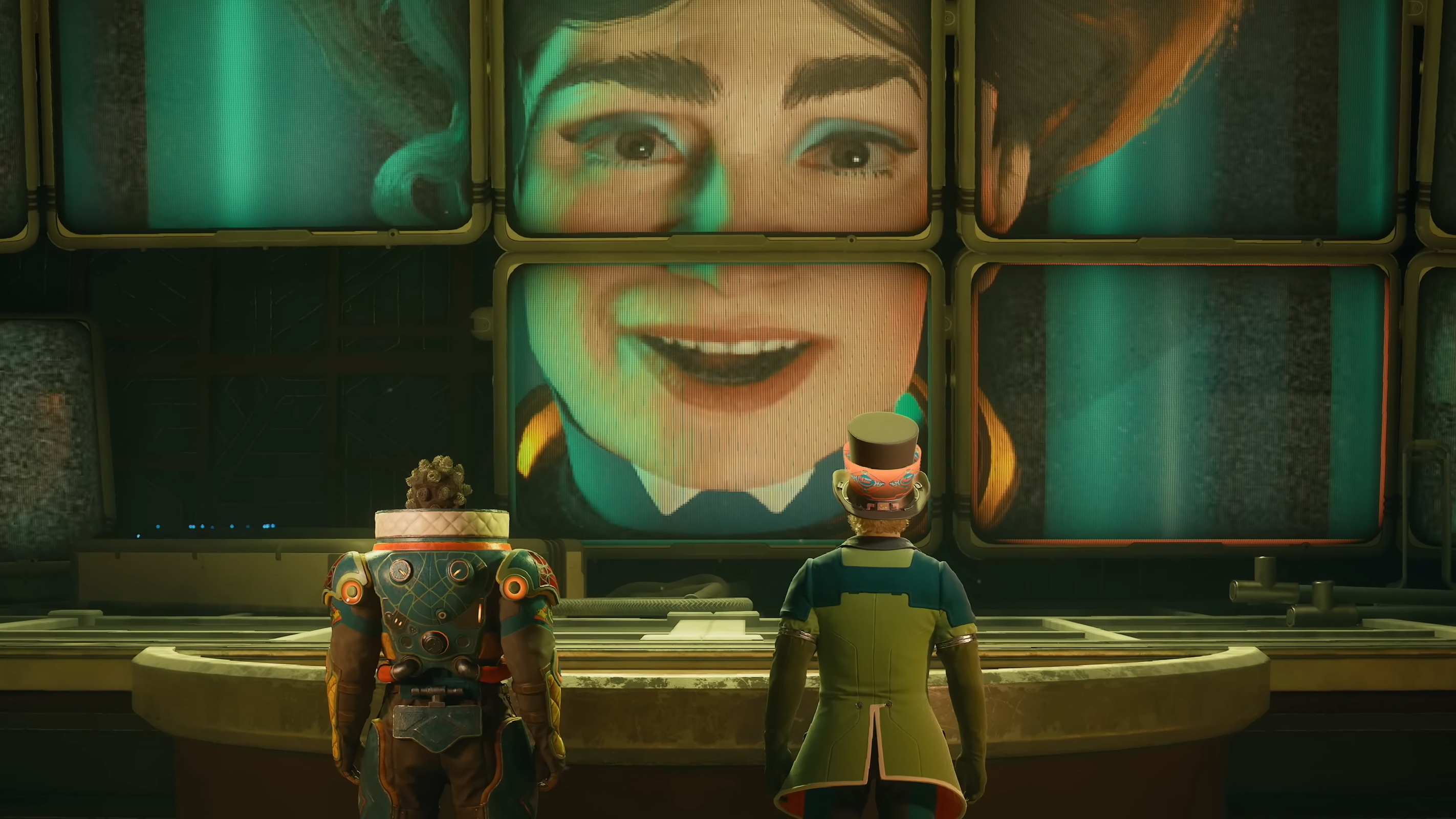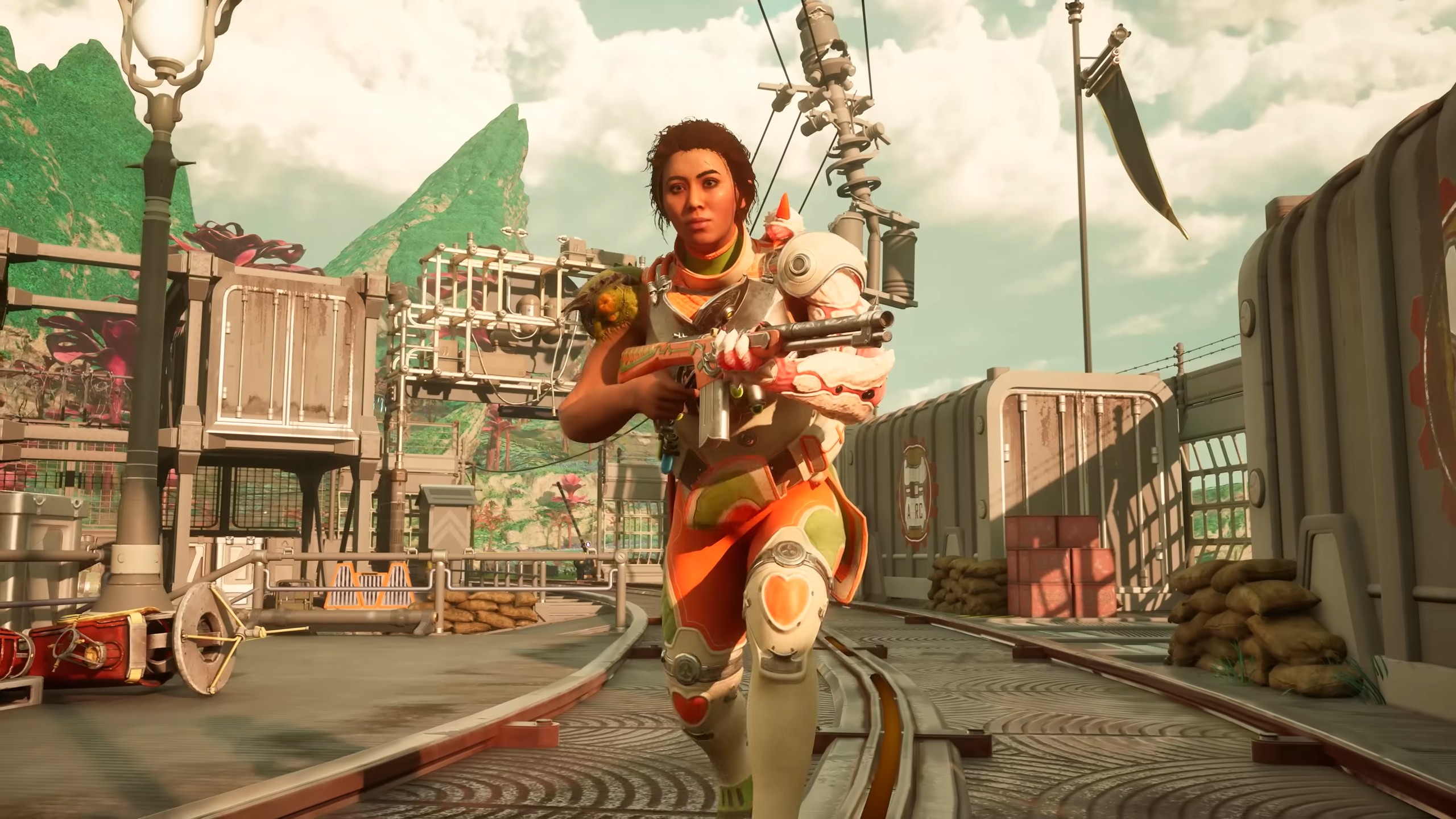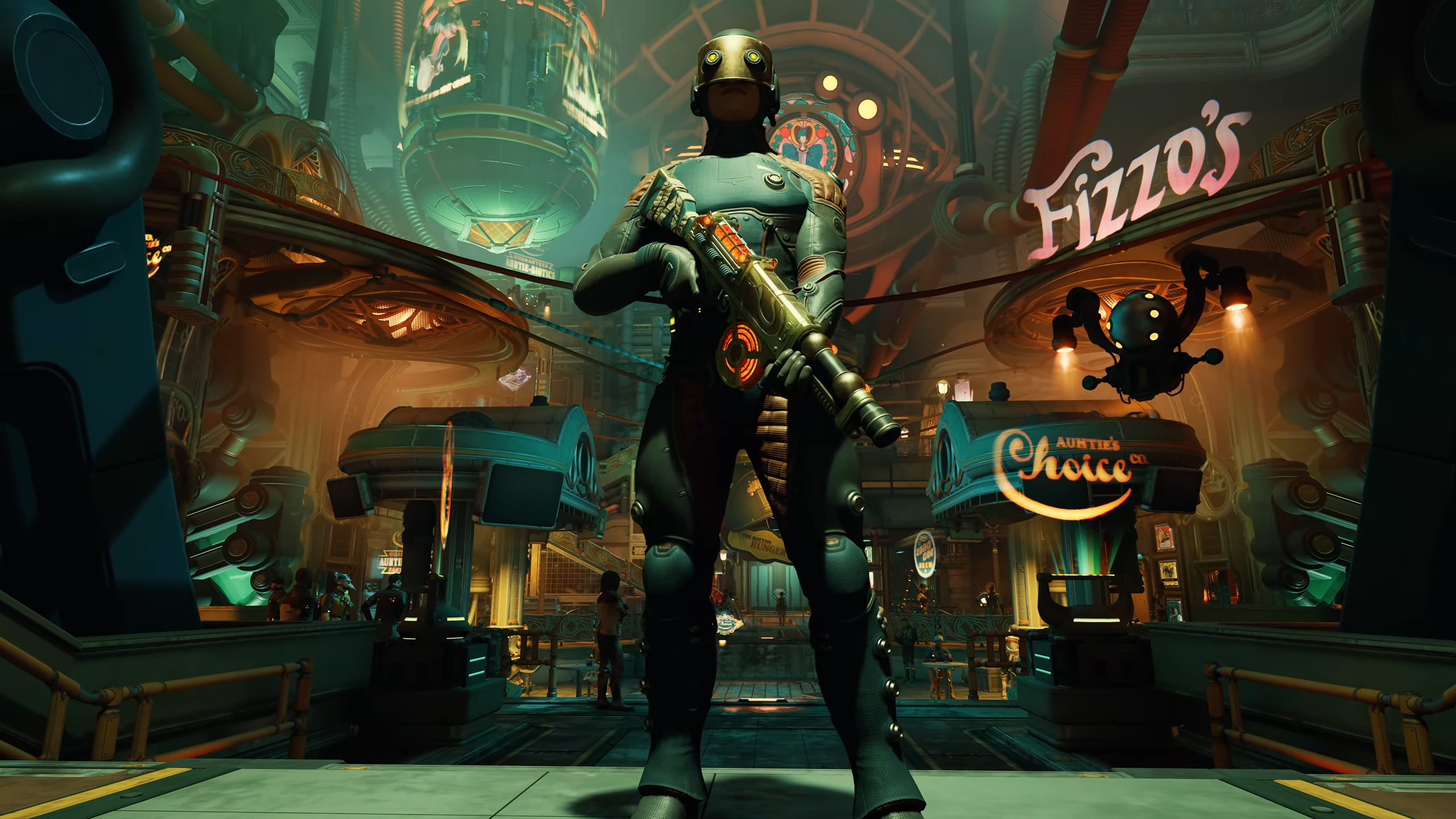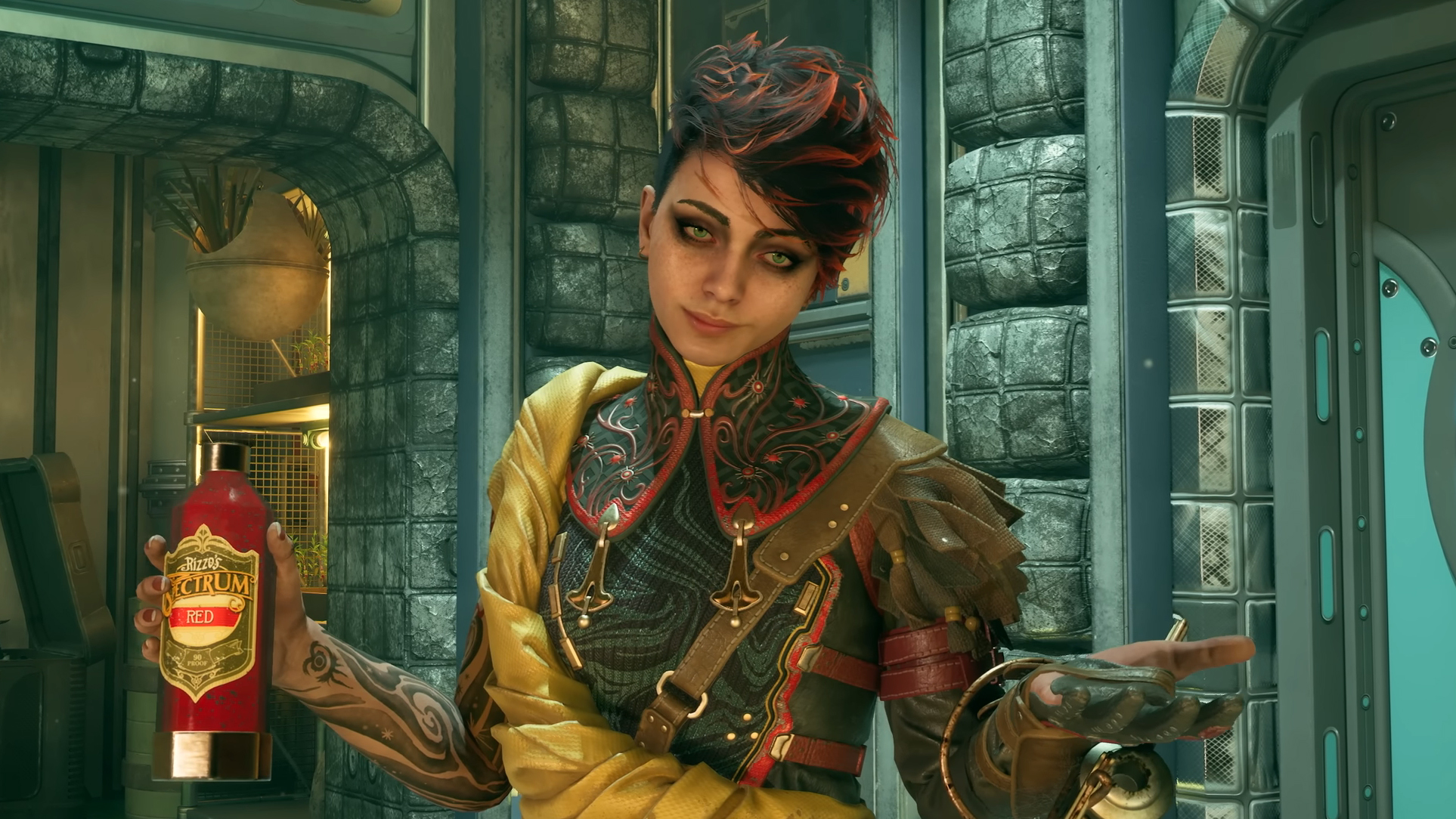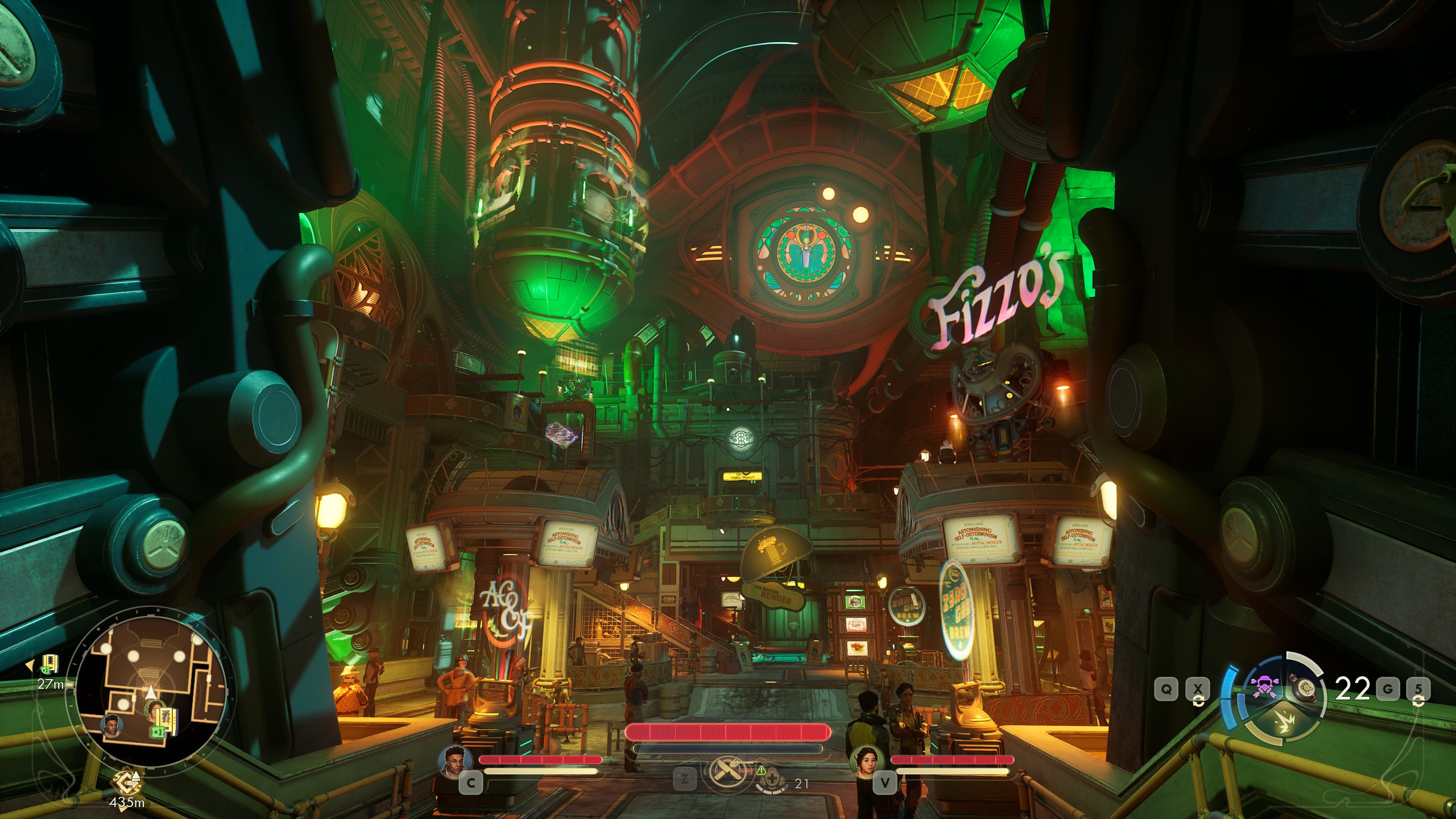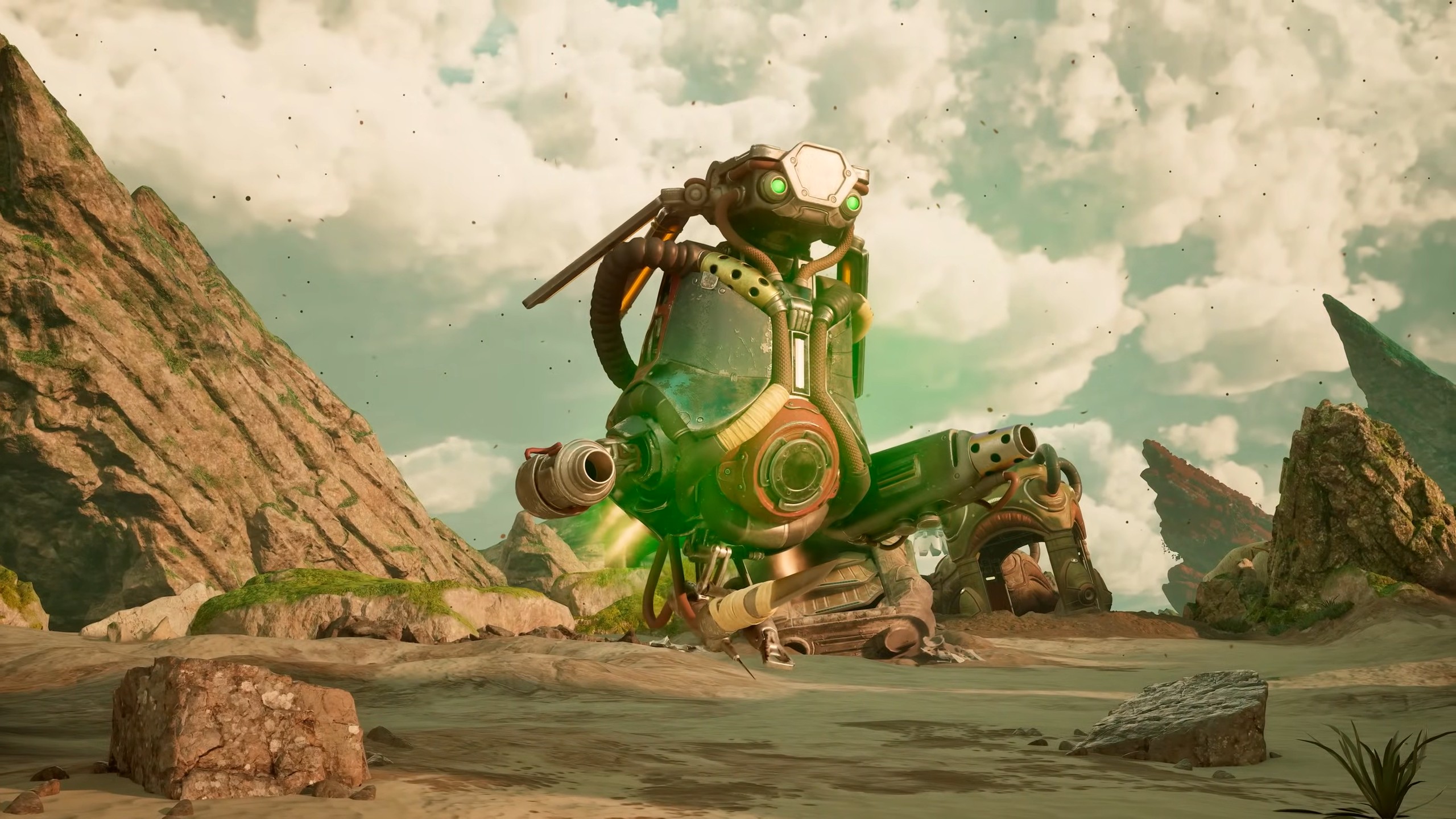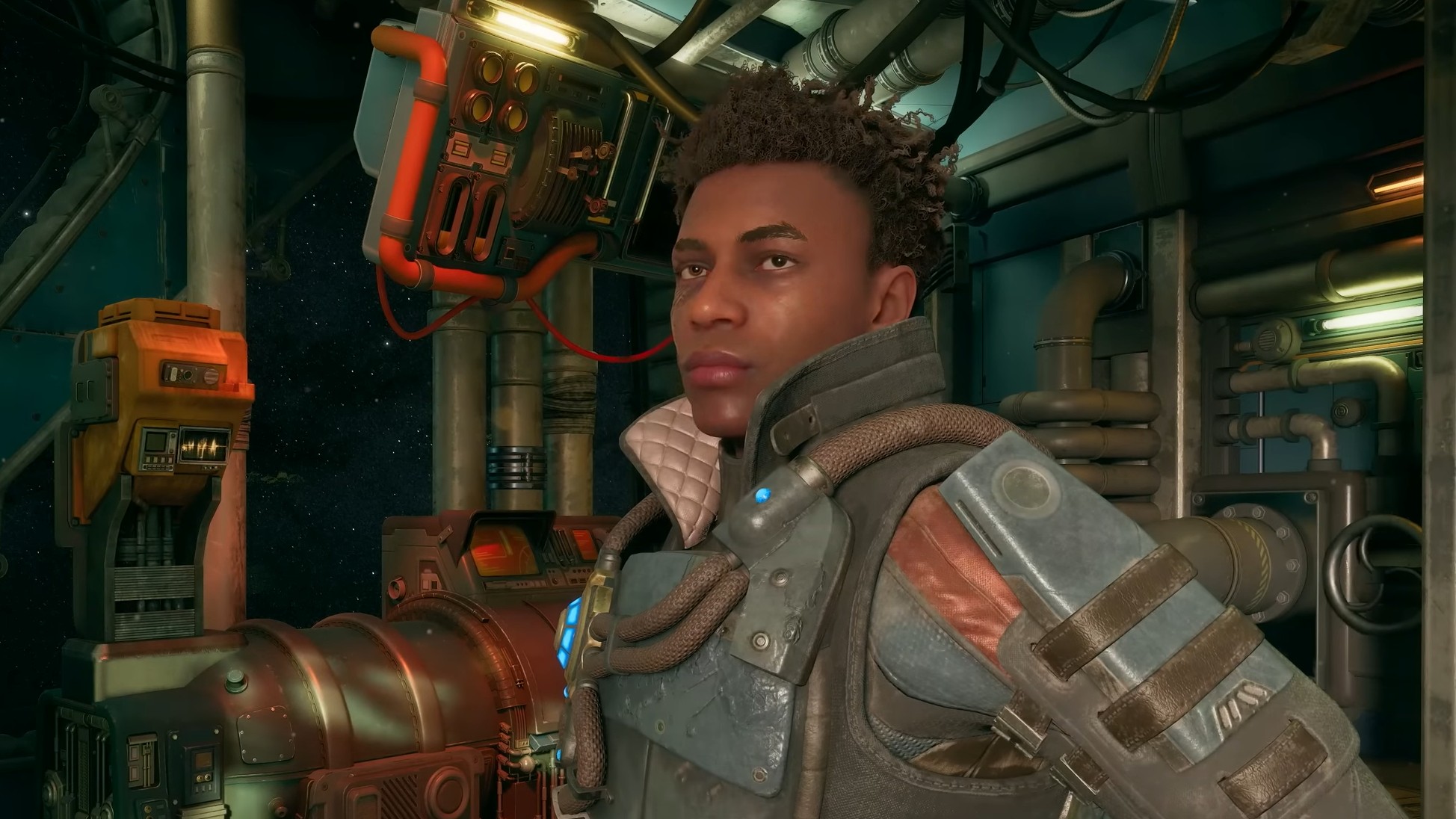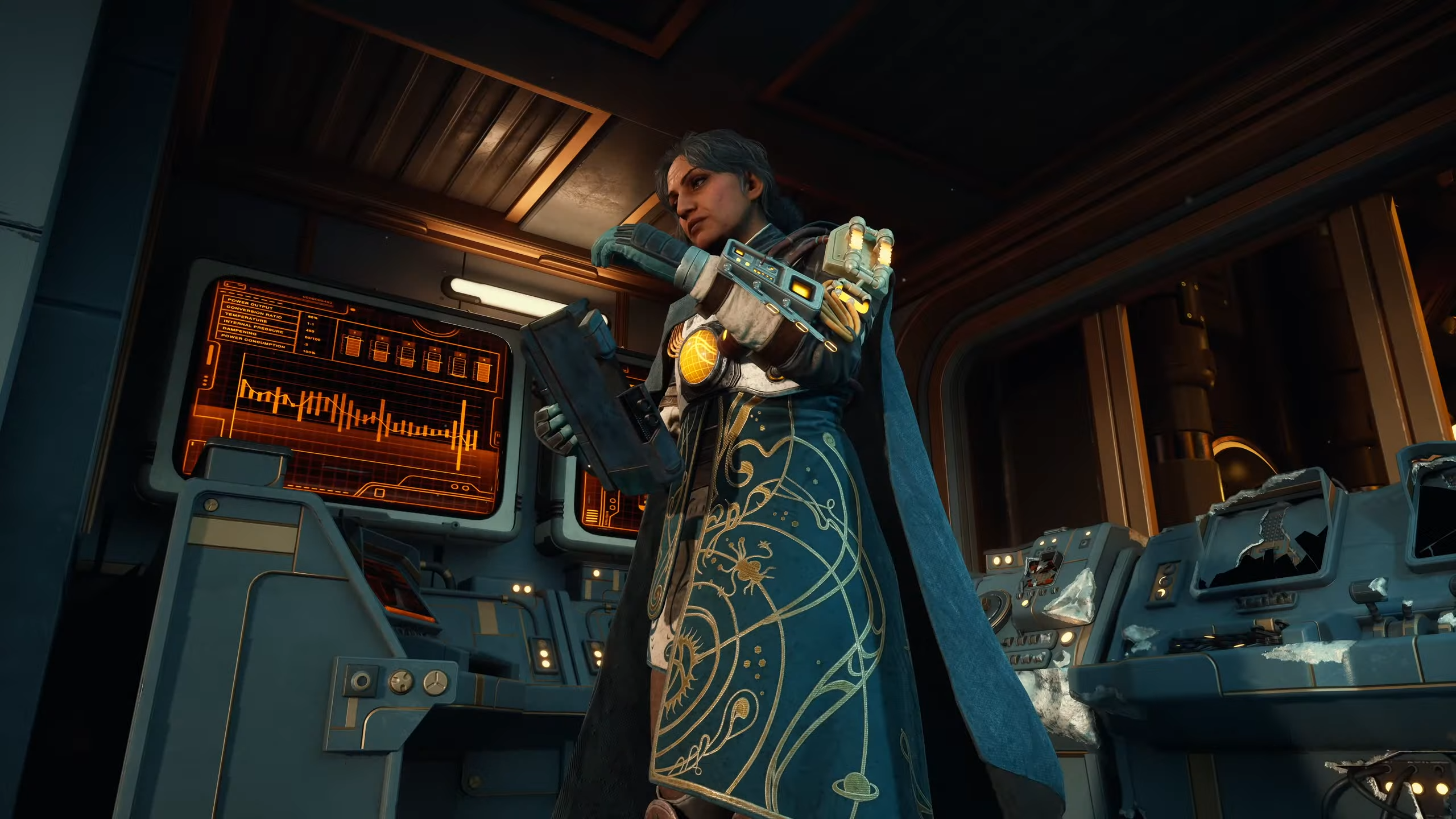The Outer Worlds 2's toothless satire of capitalism should be a disappointment to everyone, except Microsoft
"Capital has the ability to subsume all critiques into itself. Even those who would critique capital end up reinforcing it instead."
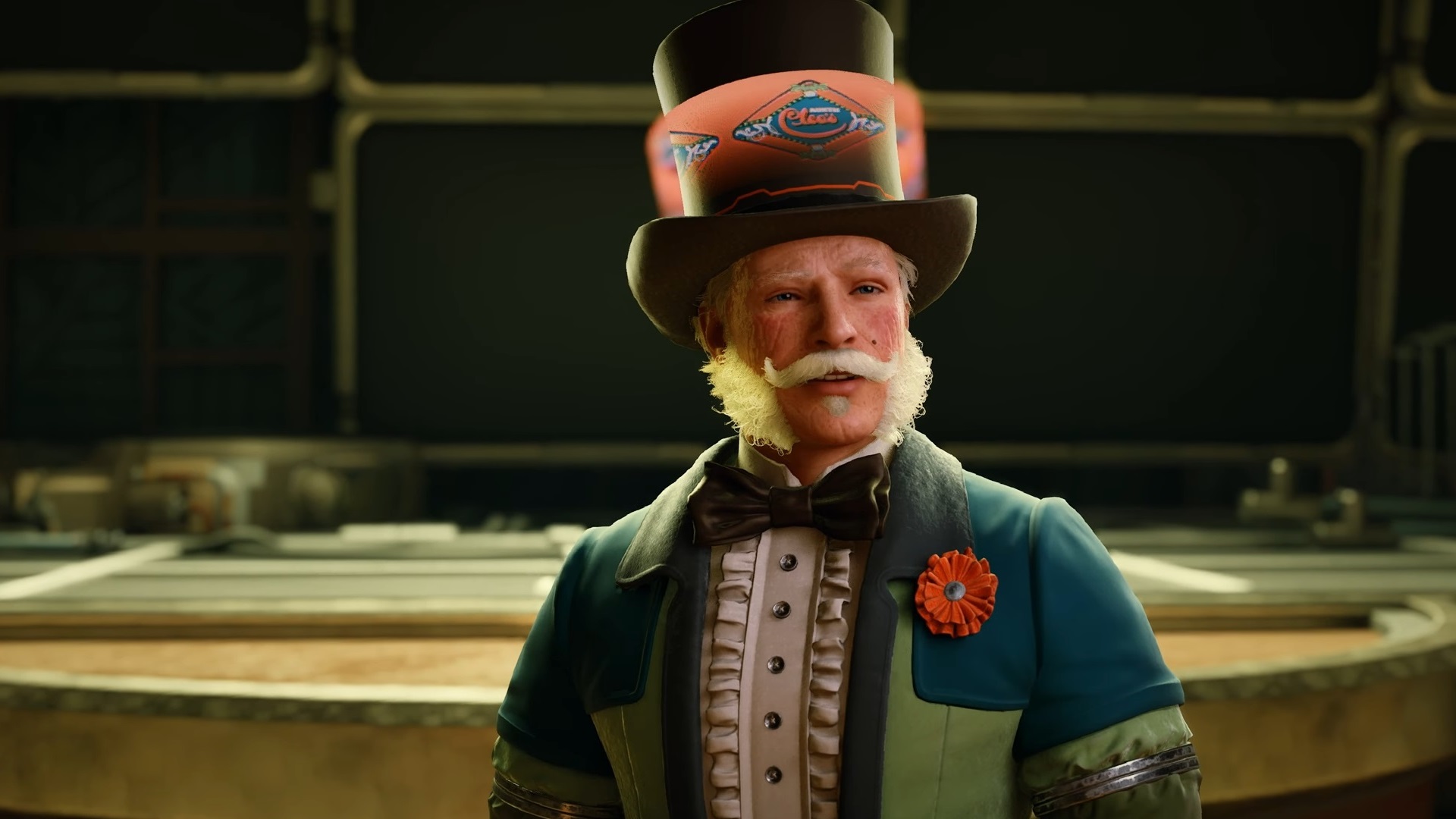

Last week I hopped from Bloodlines 2 to The Outer Worlds 2, mainlining RPG sequels.
This week I've been regretting my decision.
I am a man on a mission—a mission to roleplay. My craving for quality RPGs never subsides. I finish one, and then I'm off on a new quest, to find another. But like so many RPG protagonists before me, I'm also cursed. Specifically, I live with the curse of having played too many great RPGs, which means that even a perfectly fine one just doesn't cut the mustard.
For a week now, I have been trying to enjoy The Outer Worlds 2. I tried to shed all my expectations and just go with the flow, to immerse myself in the off-kilter sci-fi universe that Obsidian has created. But folks, I simply cannot get into it. And this time I can't blame its proximity to Disco Elysium.
See, when the first game came out, I made the mistake of hopping in right after I'd just finished Disco Elysium. Most games would have suffered after that; Disco Elysium has become my all-time favourite RPG. But The Outer Worlds felt particularly conservative, relying on surface quirkiness to make up for its lack of meat—and working through it became a slog.
The Outer Worlds 2, though, has better roleplaying options, funnier and more evocative character flaws, and slightly stronger writing. I should be enjoying this more. I am enjoying this more. But only a bit. And having completed the first one without getting any satisfaction out of it, I'm not sure I can do it again.
It's still just too safe. It's polished and flexible and I do like turning enemies into goop, but it's devoid of surprises or meaningful novelties. And while the writing has demonstrably improved, it's still incredibly dry—for the most part—and has been entirely incapable of stirring a single emotion, except maybe boredom.
Where it really flops, though, is in its attempts at satire. Just as Fallout used things like Cold War paranoia and American exceptionalism to jump start its post-apocalyptic world, The Outer Worlds 2 uses late stage capitalism and the dangers of fascist autocracies. These two ugly ideologies sit at the heart of The Outer Worlds 2, but the way they filter out into the game's characters and storylines is half-hearted at best.
Both Auntie's Choice (the world-conquering corporation) and the Protectorate (the brainwashing fascists) are too silly and one-note to carry a game, and once you get past the jokes, the satire is almost non-existent. Obsidian has absolutely nothing to say about the ideologies that push the game forward, beyond just pointing at them and saying "Look, isn't this awful?", which, you know, duh.
Keep up to date with the most important stories and the best deals, as picked by the PC Gamer team.
This is particularly awkward given that Obsidian, once a plucky RPG studio drifting from one unappreciative publisher to another, is now a favoured studio in the great Microsoft meatgrinder.
While Obsidian's writers were penning this game, a game where two awful corporations combined to be twice as awful, Microsoft was gobbling up Activision. Obsidian had to watch while colleagues were being made redundant because capitalism leaves no room for anything aside from constant, irresponsible growth.
A $69 billion acquisition, a huge investment in AI—a bubble which economists are now predicting will pop soon—and a gaming platform, Game Pass, which prioritised short-term gains over long-term health. Gotta keep those shareholders happy, regardless of how it affects the people making Microsoft money.
Even without a dog in this race, Microsoft's treatment of its employees infuriates me. It's disgusting. For the folks at Obsidian, this must be even more enraging. And terrifying, too. Working for Microsoft means that you can make a celebrated game played by millions, and still lose everything.
None of this is evident in the silly, toothless satire presented by The Outer Worlds 2. There's no fury, there's barely even any cutting remarks. Instead, Auntie's Choice is comically villainous, completely detached from the real corporations that should be serving as its inspiration. Instead of tapping into something true, Obsidian gives us villains who are so removed from reality that they actually serve to soften the actions of their real-world counterparts.
Sure, it sucks that Microsoft is punishing workers for its own greed and bad business decisions, but hey, at least it isn't running horrific experiments on soldiers. It's just selling the US military AR devices to make soldiers better at killing! Microsoft is one of the good ones, guys.
There's a very good chance that if you're reading this, you're from a country that's currently dealing with the return of everyone's favourite baddies, the fascists. Here in the UK, we're stripping rights and dignity from our country's most vulnerable people, and the fastest-growing political party is a radical right wing outfit that loves to talk about cultural purity and how there are too many Black people on television. And in the US you've got Donald Trump.
It's a tricky thing to satirise. It's all still very raw. How do you present an ideology like this in a game, when there's a good chance the people playing it are dealing with its very real counterpart? The Outer World 2's solution? Skim-read 1984.
The Protectorate's answer to everything is control and brainwashing. After 20 hours I could not tell you anything about this faction, aside from that it absolutely loves to lobotomise people. It's so silly and over the top that its villainy is effectively rendered meaningless. Like Auntie's Choice, it's a cartoon.
This soft touch has a notable impact on The Outer Worlds 2's many NPCs, who are largely either caricatures or just vacuous devices that serve to dole out quests or move the story forward. Take Auntie's Choice's representative in the game's first settlement: He is a charming buffoon with a big hat. He will give you this big hat if you work for him. He loves profit growth and getting promotions and oh what a fun and silly boy he is.
Now, I'm not opposed to making the people propping up capitalism charming. That's often true to life. Capitalism is very appealing, and its biggest evangelists can make compelling arguments. Indeed, the most insightful discussions on capitalism in Disco Elysium stem from the game's face of capitalism, Joyce Messier.
ZAUM uses a capitalist to incisively critique capitalism, even as she supports this destructive system. She's immensely likeable—perhaps the game's most likeable character—and reasonable, and you'll be hard pushed to disagree with her, as she posits that you cannot escape the power of capital. Just accept reality, she says. Capitalism is insidious like that.
Joyce lends her voice to a problem that most successful artists, or at least those opposed to capitalism, must contend with. "Capital has the ability to subsume all critiques into itself," she says. "Even those who would critique capital end up reinforcing it instead." And sure enough, it came for ZAUM, too: The studio critiqued capitalism, made a tonne of money out of it, the creatives got ousted, and now it's got a deal with Amazon.
It's even more pointed when applied to The Outer Worlds 2, which is firmly entrenched in the ravenous capitalist machine. Its success will directly contribute to the fortune of a growing monopoly.
But while Joyce's argument is a compelling one, there's another, more reassuring perspective. That we should use all the tools at our disposal to hold people and institutions accountable. Let the executives and shareholders get their money and profit from criticism. It's not like they won't find some other way to enrich themselves. But at least this way, some good might come out of it. A few more people might wake up from their stupor.
Good satire sits with you for a while, encouraging you to think about the systems that we're trapped in. It uses mockery and ridicule and, yes, silliness to shine a light on the flaws, ugly truths and injustices that we've just become used to.
The Outer Worlds 2 doesn't have time for that, though. Instead we get exaggerated villains and bumbling clowns, all of them devoid of insights. It is not a comical reflection of reality. It's a sideshow attraction. "Come one, come all, let's laugh at the man with a big hat plastered in holograms." And once you've had your fill, you never need to think about it ever again. Lovely!
"But Fraser," you may say, "The Outer Worlds 2 is just a videogame. Stop taking everything too seriously." And yeah, fair play, it's just a silly space romp with fun guns. But Obsidian has filled this silly space romp with political and economic ideologies. They sit at its very centre. And this is why sci-fi exists! It presents a world that could be, to say something about the world that is. But The Outer Worlds 2 has nothing to say.
I imagine Microsoft is incredibly pleased.

Fraser is the UK online editor and has actually met The Internet in person. With over a decade of experience, he's been around the block a few times, serving as a freelancer, news editor and prolific reviewer. Strategy games have been a 30-year-long obsession, from tiny RTSs to sprawling political sims, and he never turns down the chance to rave about Total War or Crusader Kings. He's also been known to set up shop in the latest MMO and likes to wind down with an endlessly deep, systemic RPG. These days, when he's not editing, he can usually be found writing features that are 1,000 words too long or talking about his dog.
You must confirm your public display name before commenting
Please logout and then login again, you will then be prompted to enter your display name.
